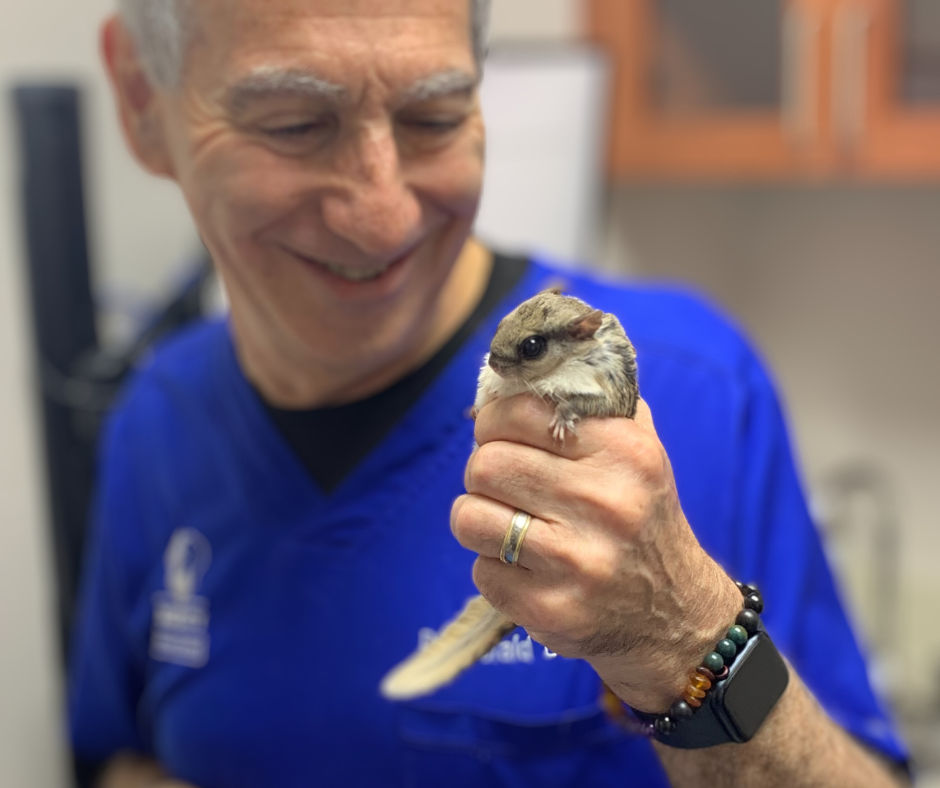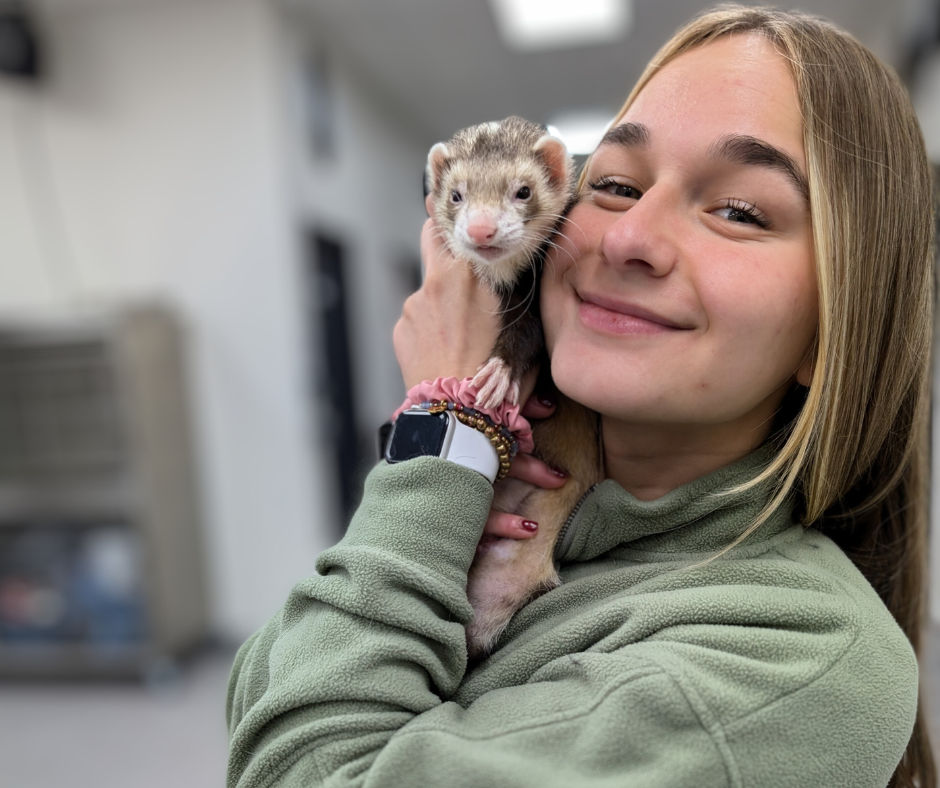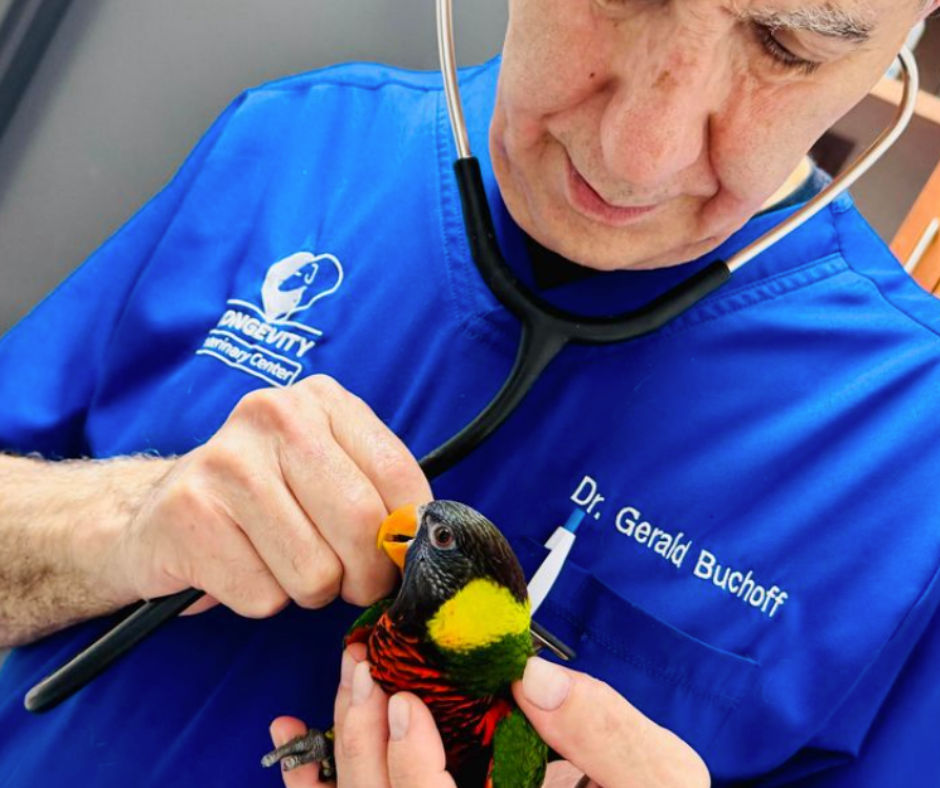Find Your Store
Exotic Pet Care

Rabbits are susceptible to a variety of diseases and conditions, including overgrown teeth, hairballs, parasites, and cancer. They also tend to hide signs of illness or pain.
Contact us if your rabbit:
- Has discharge from the eyes or nose, runny stool, or a gurgling stomach
- Has an elevated or low temperature
- Begins drooling, scratching at the ears, or sneezing
- Starts tilting his or her head
- Develops bald patches in his or her fur
- Stops eating, appears overly quiet, or shows other abnormal behavior
In addition, your rabbit can benefit from regular dental checkups. We can help make sure problems with your rabbit’s teeth don’t turn into serious, potentially life-threatening conditions.
We also strongly suggest that you have your rabbit spayed or neutered. Not only can rabbits potentially give birth once a month, but they can also have up to 14 babies at a time! Even in households with a single rabbit, spaying or neutering has plenty of benefits like: protecting your rabbit from several types of cancer and reduce or eliminate aggression, minimize spraying, mounting, destructive chewing, and biting. Spaying or neutering will not change your rabbit’s personality.
For further information, feel free to download our care sheet by clicking 'here' or visiting our Pet Care Home Tips, located in our Library.
If you have any questions about how to best care for your rabbit, we’d be happy to discuss proper diet, housing, grooming, and even litterbox training.

Nutrition-related disorders and diseases are common in reptiles. We can help you avoid these problems with nutritional consultations and terrarium set up.
We also offer an initial checkup for new reptile owners to help identify current or potential medical problems and, if necessary, begin treatment.

Just because they’re small doesn’t mean they can’t benefit from veterinary attention. Teeth, which grow continuously in gerbils, guinea pigs, and hamsters, often require trimming. Parasites such as lice, mites, and fleas can infest your pet, leading to other health issues.
Call us if your pet stops eating, loses weight, appears quieter than normal, has discharge from the eyes or nose, or develops a lump on its body. We can provide treatment that fits within your budget.
For further information on Guinea Pigs, feel free to download our care sheet by clicking 'here' or visiting our Pet Care Home Tips, located in our Library.
Care sheets for Gerbils and Hamsters are coming soon.

You can help keep your ferret healthy by bringing him or her in for an exam once a year. That way, we can monitor any changes that occur in your pet and help prevent or catch diseases early, when they’re easier to treat. As ferrets age, they may need additional testing and dental care.
Common problems associated with ferrets include gastrointestinal disease, parasites, and cancer. In addition, ferrets are inquisitive creatures by nature and frequently ingest objects they shouldn’t. Regular blood tests can help determine whether your ferret has any problems with the kidneys, liver, or pancreas.
Unless you are planning to breed your ferret, we recommend that he or she be spayed or neutered. Female ferrets, or jills, that haven’t been spayed will stay in heat until they’re bred. This condition can cause anemia (a decrease in red blood cells), which can be fatal. In male ferrets, neutering can reduce their strong body odor, prevent marking, and reduce aggressive behavior.
For further information, feel free to download our care sheet by clicking 'here' or visiting our Pet Care Home Tips, located in our Library.
Please contact us right away if your ferret develops any unusual symptoms, such as vomiting, diarrhea, hair loss, lack of appetite, trouble breathing, black ear wax, discharge from the eyes or nose, lumps, swelling, or an increase in aggression or sexual behavior (especially in neutered males).

Wing Clipping
Clipping a bird’s feathers can protect your bird and your home. Wing clipping is a nonpainful procedure that ensures the safety of your bird in its environment and keeps your bird from chewing holes in your doors and window frames. It limits your bird’s ability to fly, removing the risk of injury from flying into a ceiling fan, onto a hot stovetop, or into (or out) a window.
Having your bird’s feathers professionally clipped helps ensure that the right feathers are removed without irritating the skin. Improperly clipped wings can cause your bird to pluck or chew its feathers. In addition, inexperienced wing clipping can result in a blood feather being accidentally trimmed, a situation that can become life-threatening. We can perform this procedure safely while preserving the aesthetic appearance of your bird. Please feel free to call us to discuss this option, as well as any concerns you might have, or to set up an appointment.
Toenail Trims
Most birds need to have their nails trimmed regularly. We can take care of this procedure for you so that you don’t have to worry about nicking the blood vessels inside the nails.
Be careful if you perform this procedure at home. In fact, we only suggest that you attempt this at home if your bird is small and has white nails (which allow you to see the blood vessels). We also suggest you keep a caustic agent, such as styptic powder, on hand in case a nail bleeds.
Providing perches with rough surfaces can help reduce the frequency of nail trimming, but do not use sandpaper perches. They don’t wear down the nails and can cause skin problems.
Beak Trims
Beaks continue growing throughout birds’ lives. Although birds’ beaks usually wear evenly, some birds develop beak problems and require veterinary assistance. Trimming its beak incorrectly can cause your bird pain and may prevent it from eating, which is why we recommend having your bird’s beak professionally trimmed. Do not attempt to trim your bird’s beak at home. Call us to schedule an appointment.

Although a lot of information regarding exotic animals is widely available on the Internet, it is often difficult to determine what sources to trust. You can rely on our experienced veterinary team’s knowledge of mice, rats, pot-bellied pigs, hedgehogs, and other exotic pets.
Not only can we provide medical assessments and perform surgical procedures, but we can also help you prevent many diseases related to improper nutrition, which are extremely common in these animals. Please schedule an appointment so we can discuss your exotic pet’s nutritional needs. In addition, we supply a wide range of foods and supplements for these unique animals.
What Our Customers Say
Our clients come from New Jersey, Manhattan, Staten Island, Westchester County, Eastern Pennsylvania, and beyond! If you are further away, please call us about telehealth consultations for your pet.









